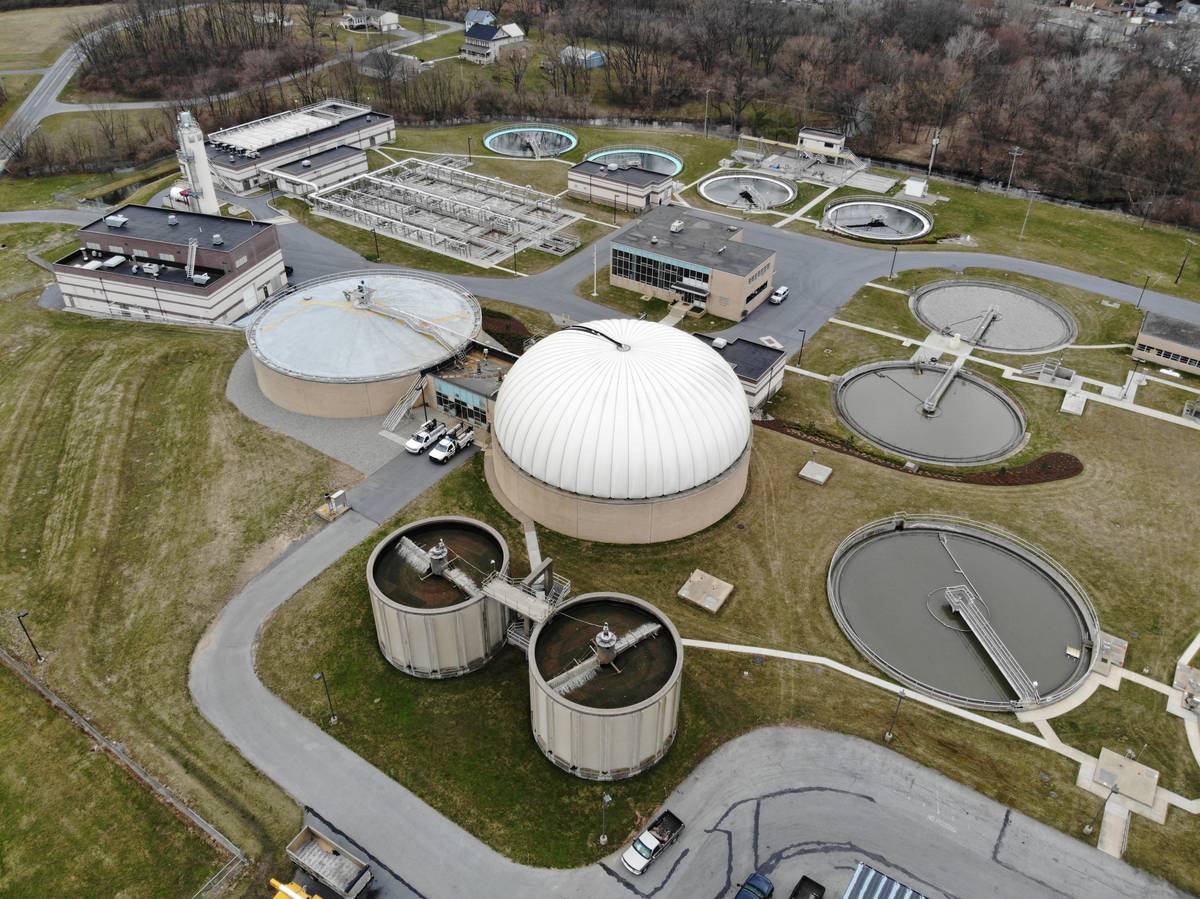This article was funded by LebTown donors as part of our Civic Impact Reporting Project.
The City of Lebanon Authority board voted Monday, Jan. 8, to issue a ‘notice of intent’ to award contracts for $27.9 million of improvements to its wastewater plant.
The contracts will be formally awarded at the board’s Feb. 12 meeting provided the contractors’ payment and performance bonds, certificates of insurance, lists of suppliers and subcontractors and other paperwork are in order, said Jon Beers, COLA executive director.
The formal award also hinges on approval of an additional $5.65-million loan from PennVEST. Previously, PennVEST had approved a $22.5-million loan for the improvements, but because bids came in higher than expected, COLA applied for a second loan.
Read More: City of Lebanon Authority to request loan for wastewater treatment plant upgrades
PennVEST is expected to vote on the request at its Jan. 24 meeting.
Low bidders for the project were: $18.7 million to PACT Two, LLC, Ringoes, N.J., for general construction; $292,000 to Garden Spot Mechanical, Inc., Manheim, for plumbing; $1.4 million to Garden Spot Mechanical, Manheim, for Mechanical/HVAC; and $2.3 million to Garden Spot Electrical, Manheim, for electrical.
The planned improvements to the wastewater treatment plant include replacing and upgrading equipment and facilities. The project also will enable the plant to better handle rain events when flows into the system can sometimes quadruple.
Read More: Fresh cow manure revives gas production at Lebanon wastewater treatment plant
What happens at a wastewater treatment plant?
“We make dirty water clean,” says Frank DiScuillo, wastewater systems director with the City of Lebanon Authority.
That’s the short version of what’s involved in treating wastewater—that is, anything that goes down a drain in any building in the Authority’s service area.
It is a process that is simultaneously simple and complex.
It is simple because it is a natural process relying on bacteria for decomposition. It is complex because the natural processes are accelerated and concentrated so that the water can be cleaned for reuse in a short time.
Initially, liquids are separated from solids such as food, fecal matter, paper products and chemicals (DiScuillo said he once found three $20 bills that had entered the wastewater plant).
Then through a system of settling, chemicals or treatment with different bacteria, pollutants such as carbon, nitrates/nitrites and ammonia are removed or converted into solids and gas which can be separated from the water.
Once the cleaned water has met federal standards, it leaves the plant and is discharged into the Quittapahilla Creek.
The remaining organic solids–byproducts of removing pollutants and chemically-treated phosphorous so it clumps together–are pumped to the digesters along with the multitudes of bacteria that have fed on the now removed pollutants.
Twice a week the Authority’s lab samples the biosolids in the digesters and checks total solids, alkalinity and volatile acids, said Cora Shenk, compliance and lab manager with the Authority. Those analyses, combined with monitoring of gas production, are the key parameters in ensuring treatment processes are working efficiently.
Improvements in COLA’s leak detection program have resulted in a significant reduction in water losses throughout the distribution system, Beers told the board. In 2019, losses had averaged between 30-35 percent of the water flowing throughout COLA’s system or about 3 million/gallons/day, Beers said in an email.
New leak detection equipment enabled COLA to identify and repair leaks, and now losses are below 20 percent or about 1 million gallons per day, Beers reported to the board.
In other action, Martin Yocum, Jr. was re-appointed board chairman; Betty Eiceman, vice-chairman; George Christianson, secretary; Robert Hoffman, treasurer; and Brad Longenecker, assistant secretary/assistant treasurer. Samuel Weiss, Jr., was re-appointed solicitor and Frederic Long, assistant solicitor.
The City of Lebanon Authority Board meets at 2311 Ridgeview Road, Lebanon, on the second Monday of each month at 3 p.m. The next meeting will be Monday, Feb. 12. These meetings are open to the public and do not require registration.
Questions about this story? Suggestions for a future LebTown article? Reach our newsroom using this contact form and we’ll do our best to get back to you.

Keep local news strong.
Cancel anytime.
Monthly Subscription
🌟 Annual Subscription
- Still no paywall!
- Fewer ads
- Exclusive events and emails
- All monthly benefits
- Most popular option
- Make a bigger impact
Already a member? Log in here to hide these messages
Free local news isn’t cheap. If you value the coverage LebTown provides, help us make it sustainable. You can unlock more reporting for the community by joining as a monthly or annual member, or supporting our work with a one-time contribution. Cancel anytime.
























